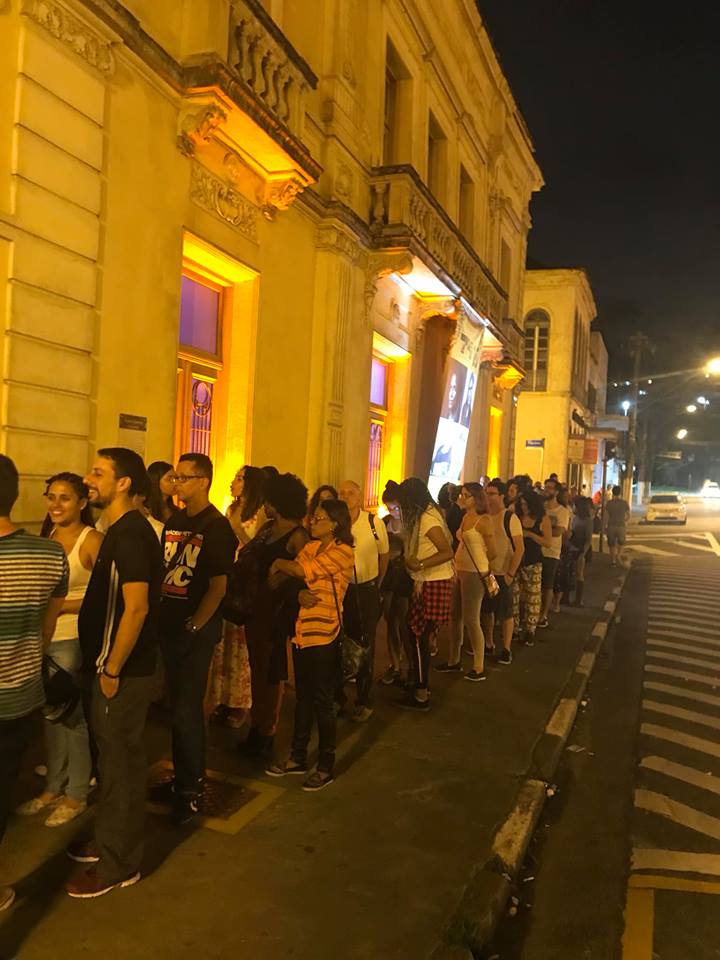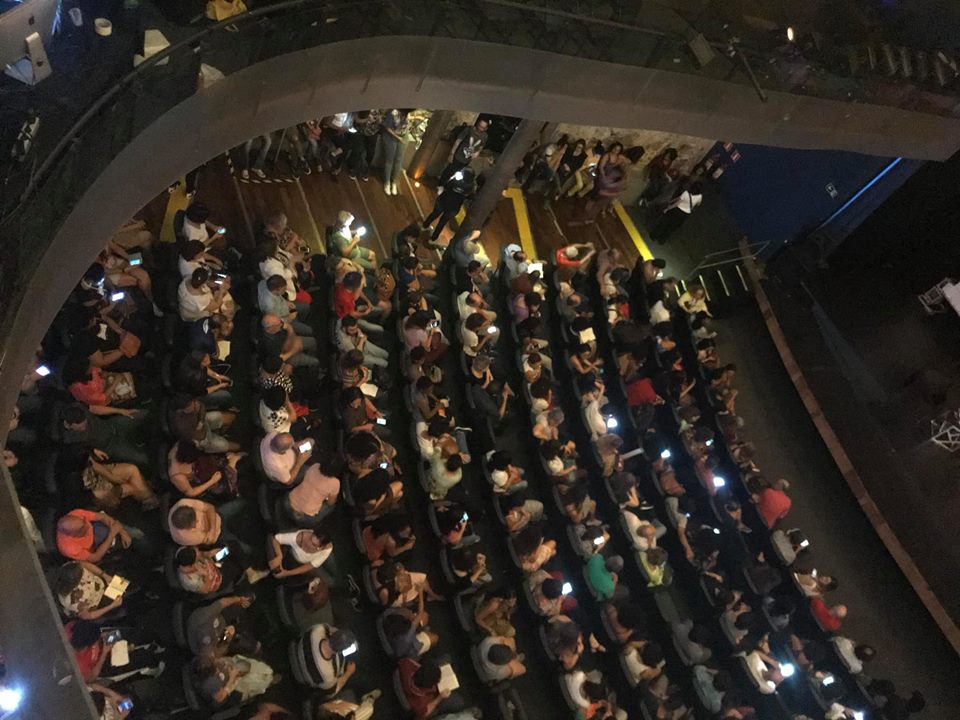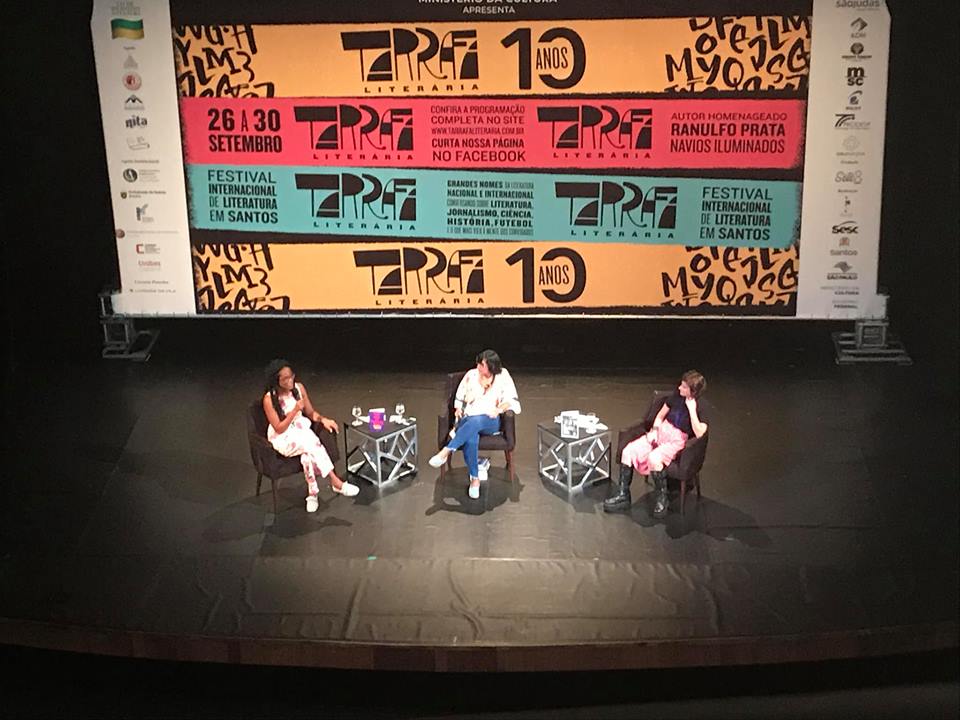I’ve been in Santos, outside of Sao Paolo in Brazil, for about five days now, and life has settled into a nice routine. I wake up each morning at nine, still slightly exhausted after a great night’s slepp. Between nine and ten I drink as many cups of coffees as humanly possible (averaging some five or six cups), and eat some scrambled eggs and papaya.
After breakfast, I spend some half an hour walking on a treadmill with a view of the beach and the bay. Everyday I watch the freight ships in the horizon, heading towards the harbour that’s defined Santos for centuries. Sometimes there’s a freight ship in the middle of the bay. Often they are half hidden by fog. And everyday I feel that ancient pull to sign up on a freight ship and spend years traveling from harbour to harbour. Who knows, maybe tomorrow I will? Since it’s early spring here, they are all freight ships, but in a few months the bay will be full instead of cruise ships. I feel no longing at all to sign up on one of those, although I suppose it would give me plenty to write about. Ivander used to work on a cruise ship, and he told me about this older woman who was a passanger on it and probably suffering from alzheimers. Every night she called down to reception asking them when the cruise departed. “It was like she never went on the cruise at all. She was always waiting for it to depart.” If that’s not a metaphor about life I don’t know what is.
Lunch is at 12.30. That is, I show up at 12.25, and Ana, Zé and Ivander turn up at 12.45. We usually eat at the same Italian restaurant (excellent fish, as everywhere in Santos), have a great coffee afterwards at the bookshop, and then Ana spends the afternoon sightseeing and I head back to the hotel to regroup.
(Ana is the portuguese writer that joined us a few days ago, and her full name is: Ana Margarida de Carvalho. Never have “Bivald” felt more boring!)
I contemplate the next developments in the book I’m working on by swimming around, around in circles in a very small pool. There’s something very meditative with swimming around in small circles. I usually get an idea or two, but if inspiration is really lacking I spend some time in the hot tub as well. That usually does it. And then I sit in the hotel bar with a coffee of varying quality and write down whatever idea I had.
Evenings are spent at the bookfestival, sitting high up in a theatre and listening to the talks while Ivander translate besides me. Yesterday was a translator who was working on One thousand and one nights, from arabic to portuguese. He was currently on volume 4, but had no real hope of translating the whole thing. There are some twenty volumes and an indefinite amount of different versions and were he to translated it all he would, as he put it, “die translating”. Which is not a bad way to go, I felt. The other writer was Milton Hatoum, who had lived all over Brazil and wrote novels with strong female characters in them. He had himself grew up in a family where the men were silent and the women strong, and he believed that childhood and the teenage years influenced what a writer wrote later in life, which is probably true.
Dinner is ten pm and lasts until about one am, which is the reason I wake up slightly exhausted every morning at nine.




